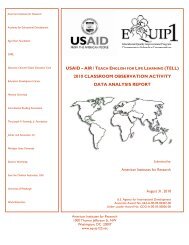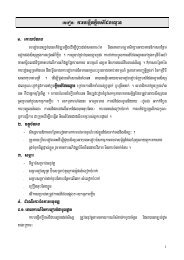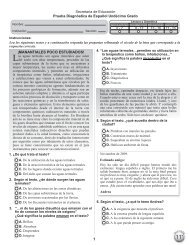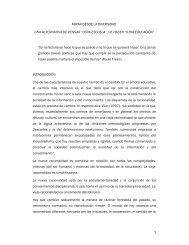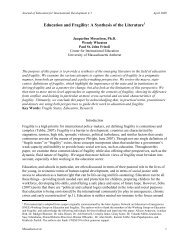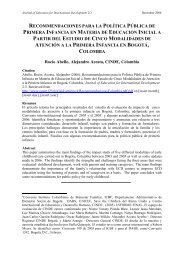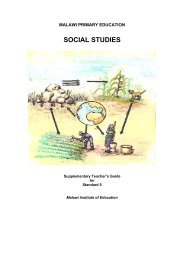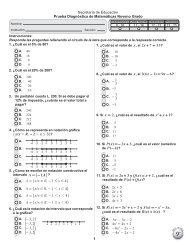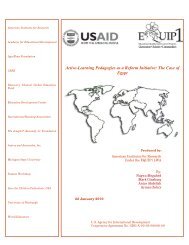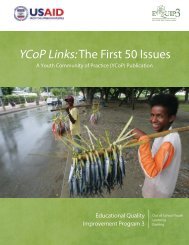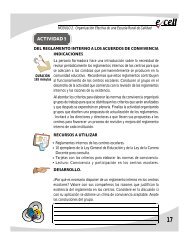The Power of Persistence: Education System ... - EQUIP123.net
The Power of Persistence: Education System ... - EQUIP123.net
The Power of Persistence: Education System ... - EQUIP123.net
You also want an ePaper? Increase the reach of your titles
YUMPU automatically turns print PDFs into web optimized ePapers that Google loves.
Namibia: Summary<br />
COUNTRy CONTExT<br />
Namibia’s colonial history informs the dominant influences in the country’s<br />
political, economic, and social life. <strong>The</strong> former German colony <strong>of</strong> South-West<br />
Africa was occupied during World War I by South Africa, which then annexed<br />
the territory after World War II. <strong>The</strong> South-West Africa People’s Organization<br />
(SWAPO) initiated a guerrilla war <strong>of</strong> independence in 1966, which culminated<br />
with independence in 1990. SWAPO has governed the country since that time,<br />
with the first 14 years under the SWAPO leader Sam Nujoma.<br />
Namibia enjoys one <strong>of</strong> the highest levels <strong>of</strong> per capita income in Africa, but<br />
this statistic is misleading. With a Gini index <strong>of</strong> 74, Namibia also has one <strong>of</strong> the<br />
most unequal income distributions in the world. Much <strong>of</strong> the majority black<br />
population is poor, engaged in subsistence agriculture, and living in the Northern<br />
regions. In addition to the economic challenges, HIV/AIDs is a significant factor<br />
in Namibia, with a prevalence rate <strong>of</strong> over 21 percent <strong>of</strong> the adult population.<br />
REFORM gOALS<br />
From the outset <strong>of</strong> the education reform development with Independence<br />
in 1990, the Namibian government’s goals were all related to nation building<br />
and democratization <strong>of</strong> the society. <strong>The</strong> policies were all formed and driven<br />
by the ideological shift from a system <strong>of</strong> racial apartheid to one based on the<br />
principles <strong>of</strong> inclusive democracy. <strong>The</strong> major education policies came directly<br />
from the principles <strong>of</strong> the new Constitution and the education practices in the<br />
pre-Independence schools developed and managed in the pre-Independence<br />
SWAPO camp schools, supported by internationally recognized concepts <strong>of</strong><br />
teaching and learning. <strong>The</strong> education reform movement, from 1990 through to<br />
the present has been consistently guided by the overarching principles <strong>of</strong> equity,<br />
access, and quality.<br />
SECTION 2: lESSONS fROM COUNTRY CASE STUdIES<br />
85



